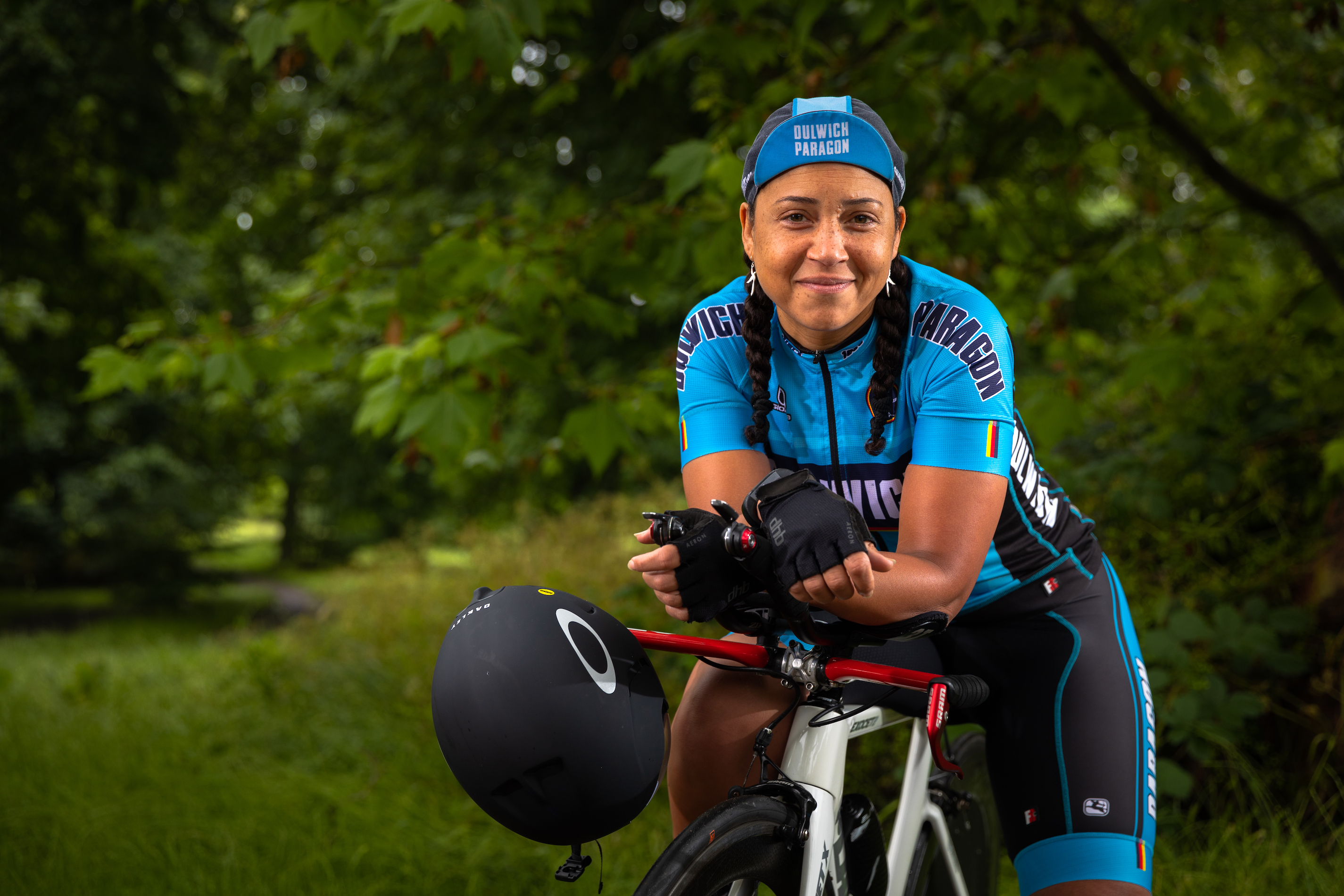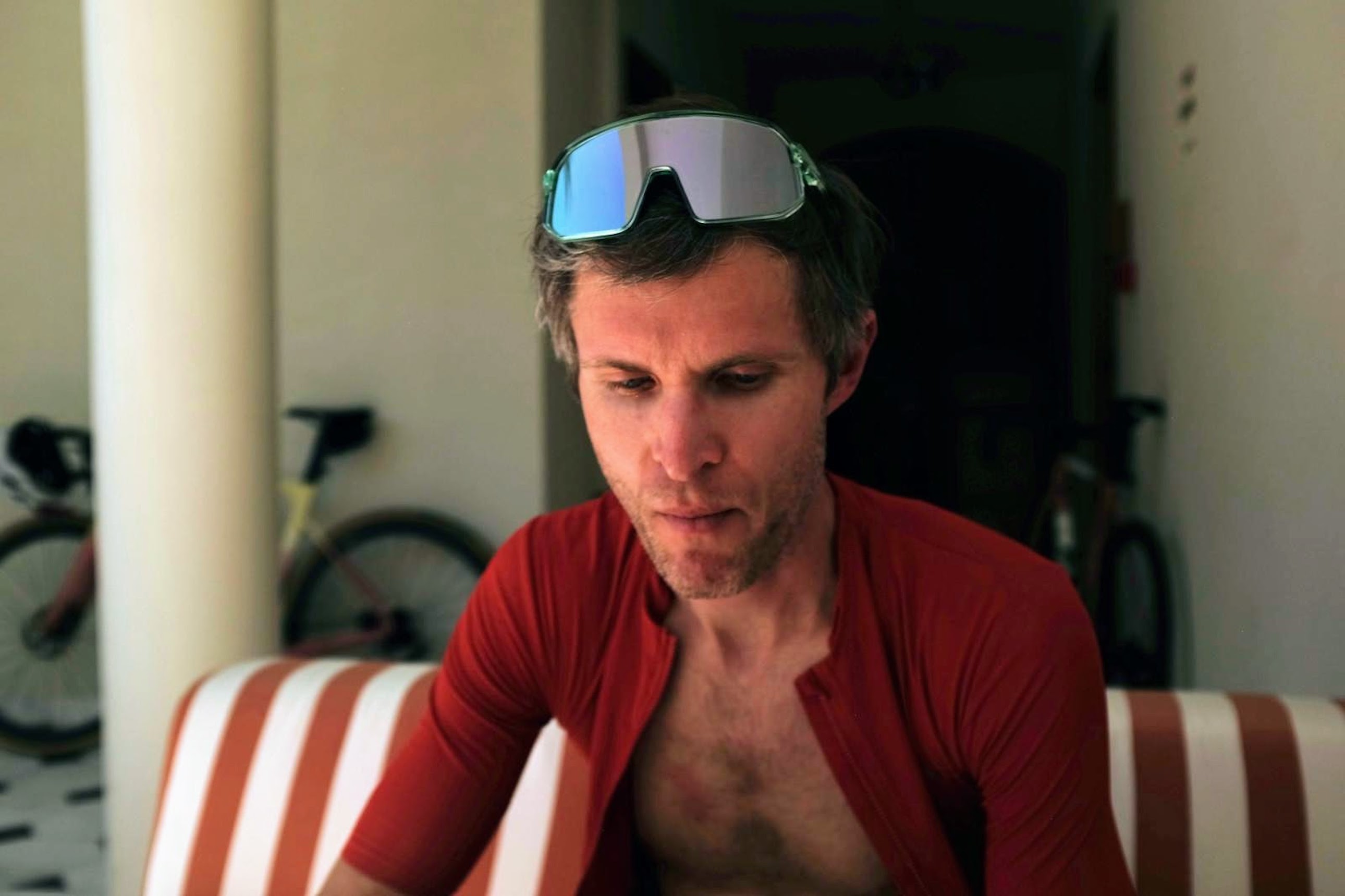'I had a stroke at 33 and my blood is replaced every month': Riding out the harsh realities of sickle cell disease
Refusing to let the health jeopardy of a serious blood condition hold her back, Sonia Chane-Sam found support and succour in cycling


"I have a massively addictive personality,” confesses Sonia Chane-Sam, speaking to me via laptop from her living room in Southwark, south London, when I ask how she first got serious about cycling. “I was already doing lots of gym-going, plus a bit of running, and I was really into spinning.”
Her gym obsession was brought to an abrupt halt in 2014 when, aged just 33, she suffered a stroke and was urged by doctors to ease off the throttle. “I was told to quit smoking, live as healthily as possible and avoid stress,” recalls the 40-year-old. “As a single mum working and studying, I’d just finished my accounting diploma but had to drop my uni plans.”
Thanks to her high level of fitness, Chane-Sam made a full recovery from the stroke – but it had not come entirely out of the blue. Six years earlier, while pregnant with her second child, she had been diagnosed with sickle cell disease (SCD). An inherited condition that mainly affects people of African or African-Caribbean origin, SCD disrupts haemoglobin production and leads to the formation of rigid, sickle-shaped red blood cells. The symptoms include blood vessel blockages that can trigger intensely painful “sickle cell crises”, as well as anaemia, organ damage and an increased risk of infections. On top of this, Chane-Sam has begun to notice cognitive effects. “I find it hard to remember facts, which can make me feel ashamed – I avoid quizzes.”
The only way of managing the condition, in Chane-Sam’s case, is by having regular blood transfusions. “Every four weeks I’m hooked up to a dialysis machine and my own blood is removed as I receive 10 pints of donated blood.” She stresses her gratitude to donors. “I’m reliant on others giving blood.”
Amid the effects of the stroke, the SCD and the gruelling treatment regime, her bike has become a precious means of escape. “I’m offered a taxi home after each transfusion, but I’ve always refused it. I just jump straight onto my bike, and feel better,” she smiles. “What I loved about getting into cycling was that it was for me, not because of the illness. I was cycling to become a better cyclist.”
And become a better cyclist she promptly did. After taking part in the London-to-Brighton charity ride with workmates, Chane-Sam threw herself into training and joined her local club Clapham Cycle. “I remember my first club ride to Richmond Park – on my hybrid with my backpack crammed with two locks, bottles and my big purse,” she laughs, remembering her newbie naivety, “and when we got there, I thought that was the end of the ride!”
Within a year, she was a fully fledged rider embracing the full spectrum of what club cycling had to offer – and continued to do so until the pandemic hit. During lockdown, Chane-Sam had to be very extra cautious, shielding herself from the outside world for two months. “I was pretty scared of what could happen,” she says, “knowing I could have another chest crisis or stroke. I felt very vulnerable.” Unable to ride outside, she resorted to the rollers and toiled to revive her old love of exercising indoors.
Get The Leadout Newsletter
The latest race content, interviews, features, reviews and expert buying guides, direct to your inbox!
Midway through our conversation, Chane-Sam unexpectedly rewinds to pre-Covid times. “There’s something else I should mention,” she says. “A few years ago I was told I was a good candidate for a potential cure for sickle cell disease.” The only cure for SCD is stem cell transplant, where affected bone marrow is replaced – a radical procedure that has a high success rate but isn’t without serious risks.
Training partner's view
Cyclist Richard Miller (Watford Velo) has been riding with Sonia since her first foray into group cycling
"I’ve known Sonia for over five years, and from what I remember of my first ride with her – which was her first ride with the group – was that she was a fighter who refused to give up. She was suffering that day, but little did we know that she was also battling health issues.
"Sonia will hate me for saying this, but if more human beings were like her, the world would be a much better place. She is a selfless person: no matter how much she is suffering, she never wants to hold up the group. I have seen a drastic improvement in her riding over the years. In fact, if you didn’t know, you would find it hard to believe she has sickle cell disease. I believe the illness has made her a stronger person."
In 2020 it became available on the NHS, and against the odds Chane-Sam’s sister, a willing donor, was found to be a full match. “It was the biggest decision of my life,” says Chane-Sam. “I would have to go through high doses of radiotherapy and chemotherapy, would be in hospital for three to six months and off work for a full year.” After much soul-searching, she boldly decided to go ahead.
Alas, as Covid-19 overwhelmed hospitals she received the “crushing” news that the stem cell transplant would have to be postponed. Having gone through such a momentous decision-making process, then the stresses of shielding that followed, Chane-Sam has now resolved to put the cure on hold. “I just don’t feel ready to go through the isolation and the mental strain again so soon – the hardest part was being apart from my kids.”
Despite the setbacks, her competitive spirit remains undimmed, and the enforced solo riding during lockdown inspired her to invest in a time trial bike, providing a new challenge as well as a welcome distraction. “It took my mind off everything, researching and all the technical elements.” The turn to TTs has also allowed the tireless racer to control her addictive temperament. “It’s easier to listen to your body when you’re not racing against anyone but yourself.”

Thank you for reading 20 articles this month* Join now for unlimited access
Enjoy your first month for just £1 / $1 / €1
*Read 5 free articles per month without a subscription

Join now for unlimited access
Try first month for just £1 / $1 / €1

David Bradford is features editor of Cycling Weekly (print edition). He has been writing and editing professionally for more than 15 years, and has published work in national newspapers and magazines including the Independent, the Guardian, the Times, the Irish Times, Vice.com and Runner’s World. Alongside his love of cycling, David is a long-distance runner with a marathon PB of two hours 28 minutes. Having been diagnosed with retinitis pigmentosa (RP) in 2006, he also writes about sight loss and hosts the podcast Ways of Not Seeing.
-
 'It took everything' - Puck Pieterse outclimbs Demi Vollering to win La Flèche Wallonne
'It took everything' - Puck Pieterse outclimbs Demi Vollering to win La Flèche WallonneDutch 22-year-old shows Classics pedigree with first one-day victory
By Tom Davidson
-
 Tadej Pogačar flies to dominant victory at La Flèche Wallonne
Tadej Pogačar flies to dominant victory at La Flèche WallonneSlovenian takes second win at Belgian classic ahead of Kévin Vauquelin and Tom Pidcock
By Tom Thewlis